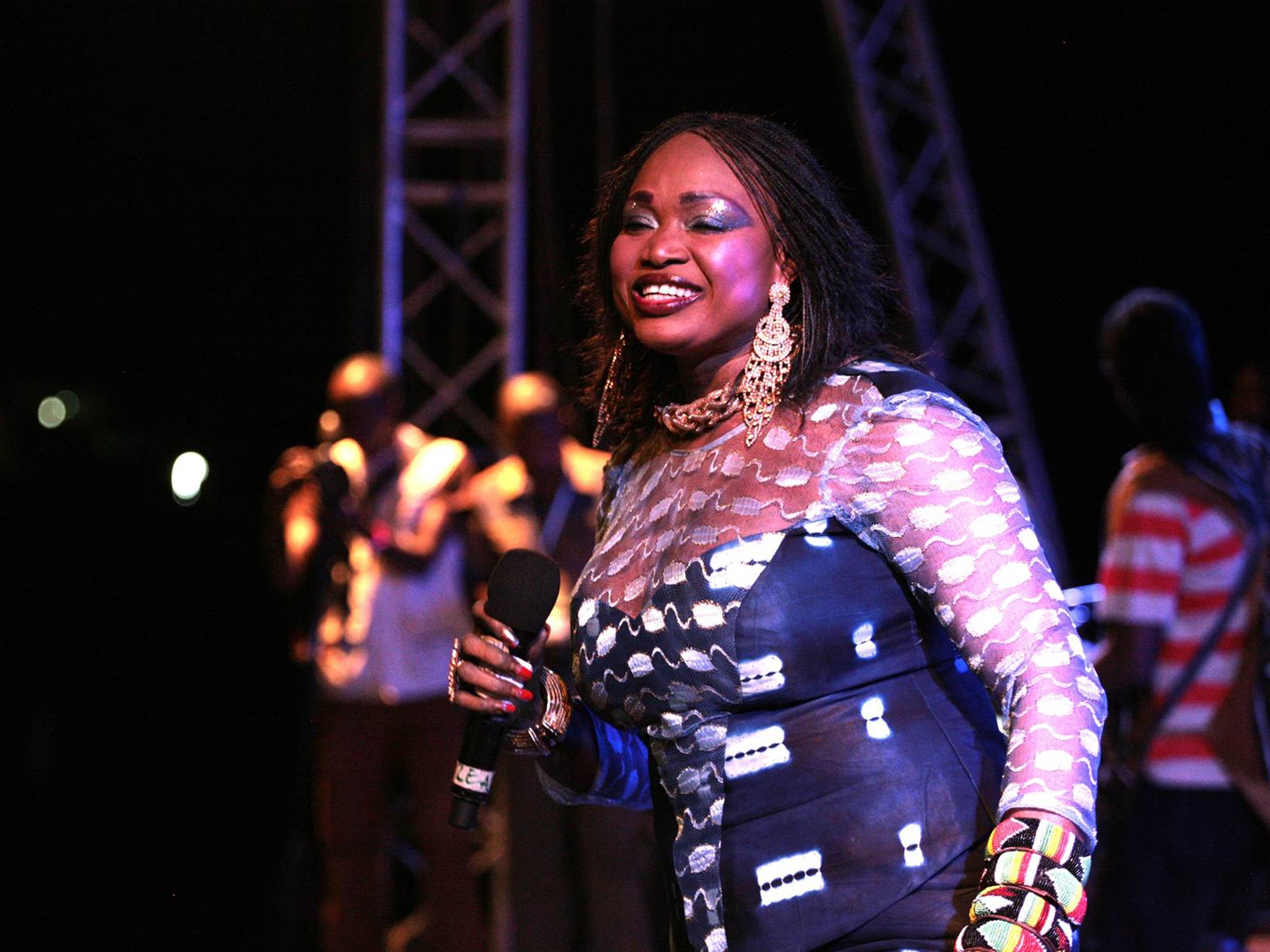How the music of Mali strikes a chord for peace
Simon Broughton joins a crowd of 25,000 to enjoy the Festival on the Niger in Mali

Your support helps us to tell the story
From reproductive rights to climate change to Big Tech, The Independent is on the ground when the story is developing. Whether it's investigating the financials of Elon Musk's pro-Trump PAC or producing our latest documentary, 'The A Word', which shines a light on the American women fighting for reproductive rights, we know how important it is to parse out the facts from the messaging.
At such a critical moment in US history, we need reporters on the ground. Your donation allows us to keep sending journalists to speak to both sides of the story.
The Independent is trusted by Americans across the entire political spectrum. And unlike many other quality news outlets, we choose not to lock Americans out of our reporting and analysis with paywalls. We believe quality journalism should be available to everyone, paid for by those who can afford it.
Your support makes all the difference.There’s nothing like hearing African music in Africa. The evening is warm, the sky is clear, and the energy is palpable. The voice of Oumou Sangare is like a burning fire over the staccato punch of electric bass, the rattle of djembe drum, and the crack of cowrie on calabash. Seeing her here, where everyone understands – and seemingly knows – her lyrics in Bambara, is to understand the importance of music in Mali.
This is the Festival on the Niger in Segou. The crowd of more than 25,000 is packed on to the riverbank facing a pontoon stage where Oumou performs on the water itself. At night the river is an expanse of darkness, only felt through a cooling breeze, unless you are one of the crazies dancing in the filthy water just in front of the stage.
Oumou Sangare has performed several times in the UK, but it’s nothing like seeing her here. And a ritual earlier in the day with musicians beating thunderous rhythms in a pirogue while marionettes depicted the river goddess, a fish, crocodile and monkey, is something that can only be witnessed here on the river itself.
The Festival on the Niger and its sandy counterpart, the Festival in the Desert, near Timbuktu, were cultural magnets for international visitors. Until the Islamic incursion of 2013, the Festival in the Desert was visited by Robert Plant, Damon Albarn, and Manu Chao alongside the cream of West African musicians. However, the Islamists banned music – the lifeblood of Mali – and ransacked the festival’s equipment.
Now, with the help of French troops and a UN Stabilisation Mission, the Islamists have been ousted, but security is far from restored in the north of the country. In the south, where Segou is, the situation feels calm and off-the-record conversations with diplomats suggest the Foreign Office’s “only essential travel” advice is over-cautious.
In 2011 and 2012, the Festival on the Niger attracted more than 1,000 visitors from outside Africa, but this year it was around 350. This is a big blow to Segou, a pleasant leafy town on the banks of the river, which has no industry, but is a centre for arts and crafts. Boat trips along the Niger take you quickly into rural Africa, and Segou Koro (Old Segou) has superb mud-brick mosques and a court house dating back to when it was at the heart of the Bamana Empire for 200 years from 1640.
Alongside continuing peace talks, music is being used to bring Mali’s many ethnic groups together. The Festival in the Desert has created a group called Malikanw (Voices of Mali) featuring top musicians from six different regions, “from Kayes to Kidal”. The idea might be idealistic, but the music is good and certainly exportable. The band played in Segou as part of a Cultural Caravan for Peace which reaches Bamako, the Malian capital, for concerts on the Nigeron 21 and 22 February this coming weekend. And there’s nothing that beats hearing the music where it was created in this most culturally fertile part of Africa.
Simon Broughton is editor-in-chief of ‘Songlines’ magazine
Join our commenting forum
Join thought-provoking conversations, follow other Independent readers and see their replies
Comments